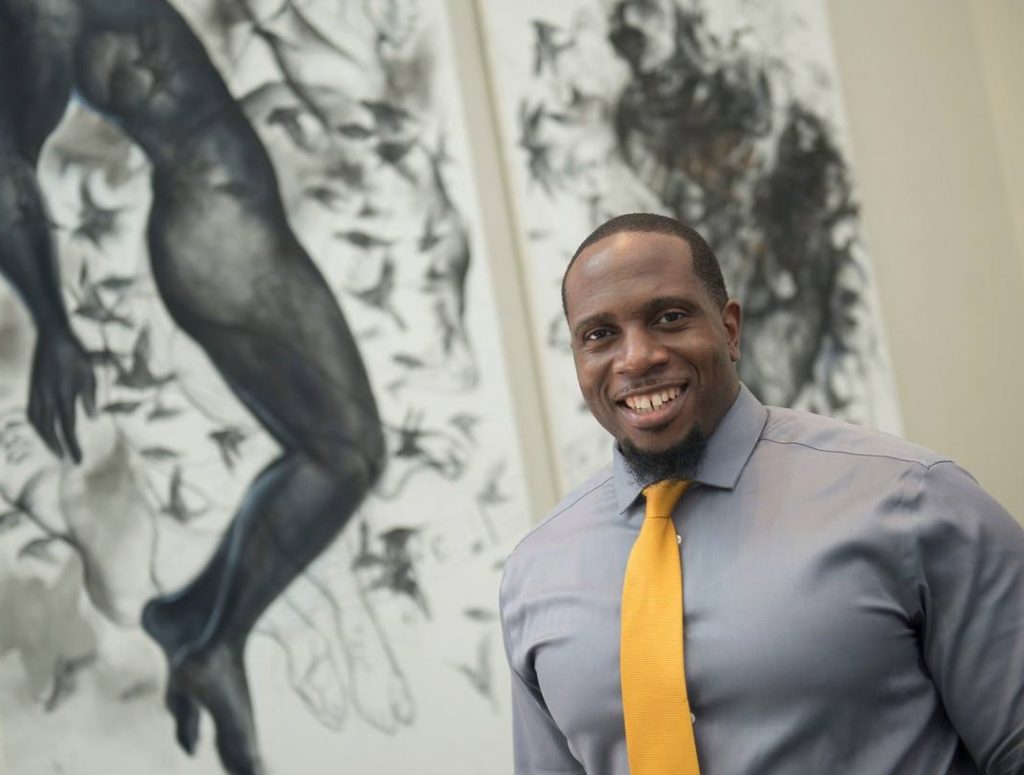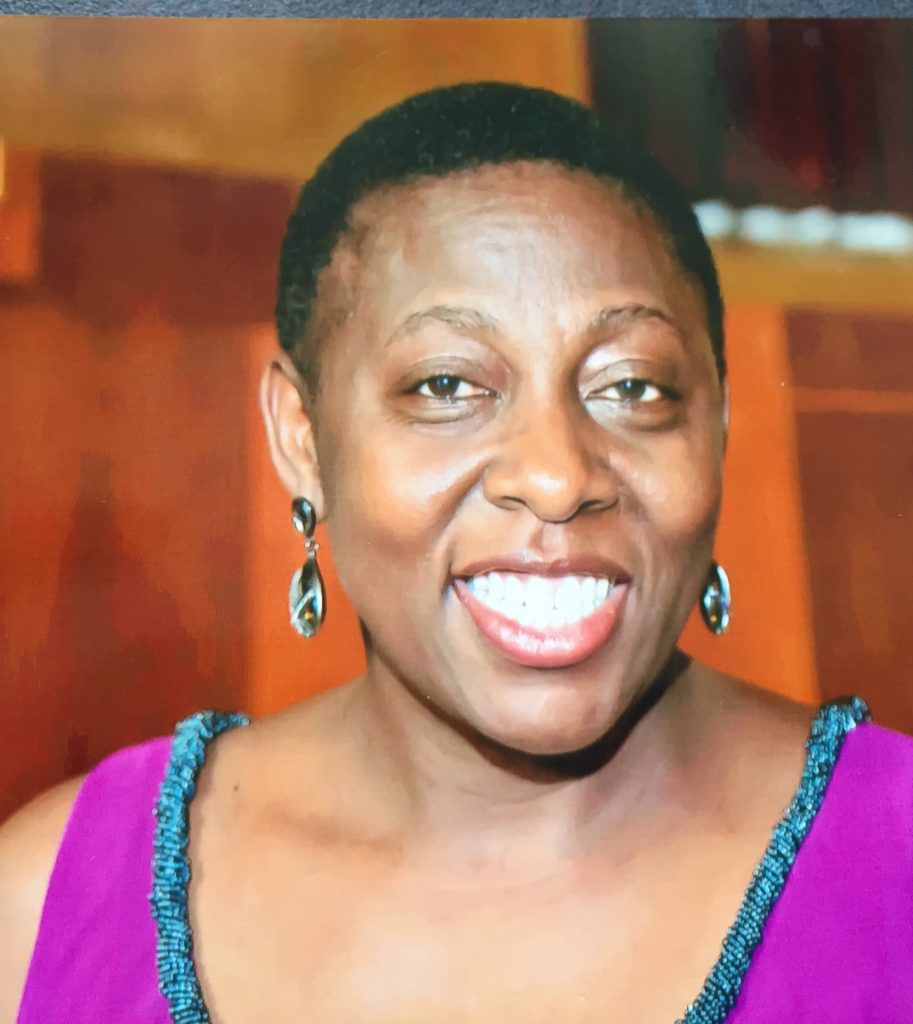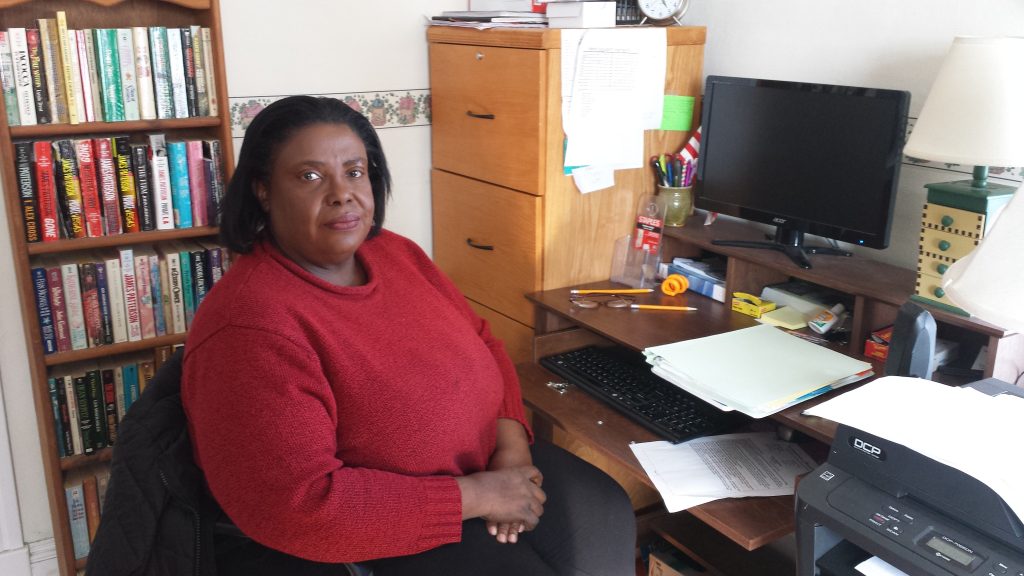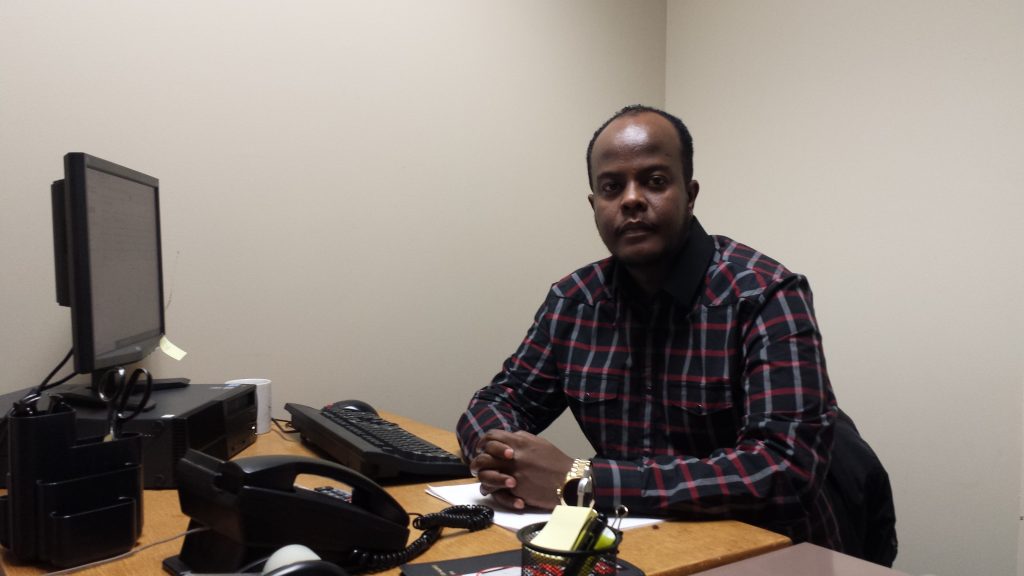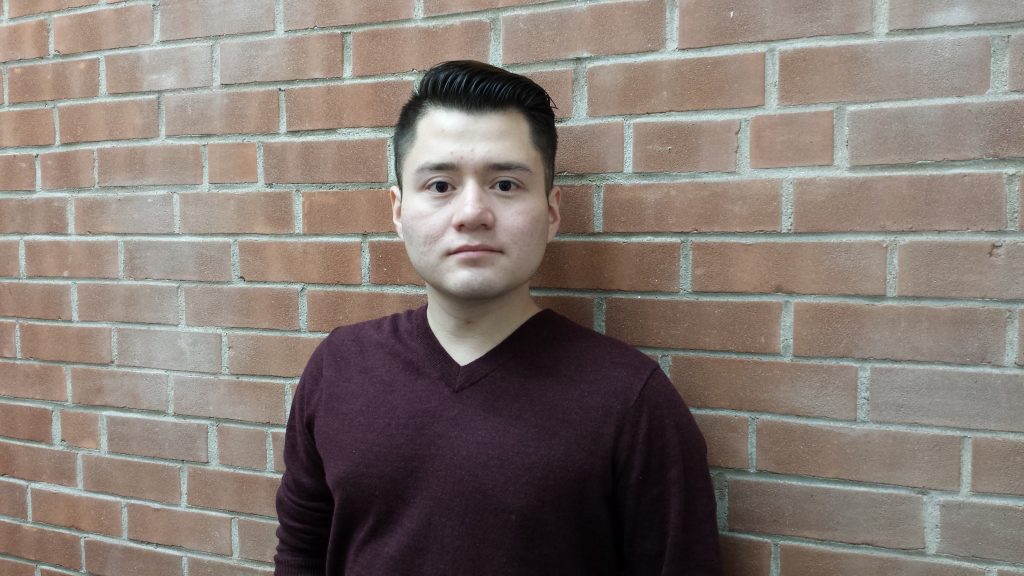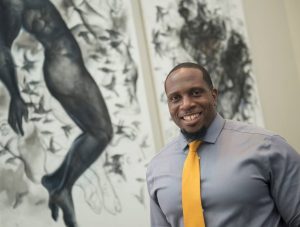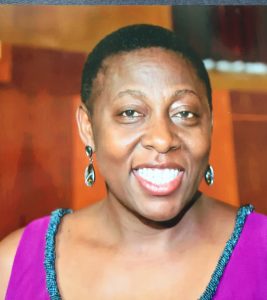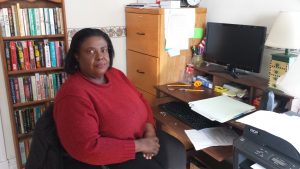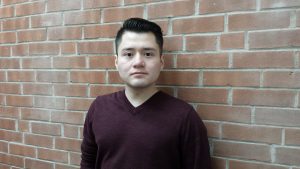Earlier this month, in a meeting with U.S. Senators and House members on immigration, Donald Trump, president of the United States, is widely reported to have asked why the government would want people from “shithole countries” coming to America? According to people interviewed who attended the meeting, his profane question was referring to immigrants from places including El Salvador, Haiti, and Africa.
His follow up statement, saying he wanted more immigrants from Norway, confirmed what many have been chastised for saying since the outset of his candidacy for president: Donald J. Trump is a racist.
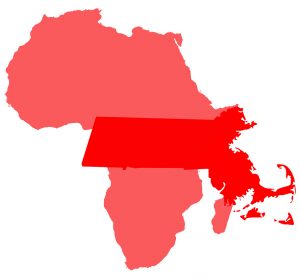 Yes, Donald J. Trump is a racist. We’ve known that for more than a year. It only takes a second to recall any of the following events:
Yes, Donald J. Trump is a racist. We’ve known that for more than a year. It only takes a second to recall any of the following events:
•Trump kicked off his presidential bid with these damning words about Mexican immigrants: “They’re bringing drugs. They’re bringing crime. They’re rapists.”
•He claimed U.S. District Judge Gonzalo Curiel may be biased against him because of his Mexican heritage.
•He ruthlessly belittled Khizr and Ghazala Kahn, the parents of a Muslim-American soldier who died in Iraq, who had criticized him during the Democratic National Convention. He implied Ghazala Khan was silent during an interview because of the tenets of Sharia Law.
•He has attacked black athletes with racially charged missives concerning their national anthem protests.
•The New York Times reported Trump said Haitians “all have AIDS.”
•The Times also reported Trump also made a disparaging comment about Nigerians at the same meeting, saying once they had seen the United States, they would never ‘go back to their huts’ in Africa.
•And lest we forget, he equated the white supremacists on one side with anti-white supremacist protesters in Charlottesville, Virginia.
That list, of course, is not inclusive. Trump has a ledger full of lies and inflammatory comments during his candidacy and presidency, but his latest invective has made even some of the strongest Trump toadies do a double take. And here’s why: there is no way to delude yourself into thinking any of these “shitholes” is not home to black or brown people. Coupled with the longing for a Norwegian-like (read white) influx, it is clear he is disgusted by the color of their skin. Moreover, his statements indicate that immigrants from those areas, by virtue of their color and nationalities, have nothing to offer the United States.
At the Advocate, we reject Trump’s lamentable and wrong-headed assertions. And in response, we have interviewed immigrants from some of the countries Trump has maliciously maligned. We have chosen to highlight the contributions they have made in their respective communities and, thus, the United States.
From Nigeria to Agawam
Imo Nse Imeh is a loquacious, affable man. He’s generous in spirit and passionate about the culture from which he hails. Imeh, a Nigerian-American visual artist and scholar of African Diaspora visual culture and aesthetics, earned his Ph.D from the Yale University graduate School, and serves as an Associate Professor of Art and Art History at Westfield State University.
Imeh dedicates three days a week in his Indian Orchard Mills studio painting; he is also the author of Daughters of Seclusion: the Revelation of the Ibibio ‘Fattened Bride’ as the Icon of Beauty and Power. His book has been described as “groundbreaking.” One online review states, “its cross-disciplinary analysis fuses West African women’s studies and art history to discuss nuances in modes of female representation and conceptualization in Ibibio art and life.”
An exhibit by Imeh, Forgotten Girls: Black Heroines on the Edge of Darkness and Hope, will be on display through March 2 at Deerfield Academy’s Van Ausberg Gallery, 7 Boyden Lane, Deerfield.
When asked if he had any reservations about broaching the subject of the president’s deleterious comment, Imeh vehemently said, “For those of us who have a platform — and I consider myself a person who does — I can’t be quiet at a time like this.”
Imeh says he feels some happiness and satisfaction now that Trump’s plainspoken racism hangs in the air. “It’s proving, sadly, so many things that I’ve known to be true … if you’re supporting Donald Trump and ignoring that this man openly represents so many abhorrent things for people who are of color, you will have to answer for it.”
Imeh shared what stung him most about Trump’s comment. “It is very foolish of us to believe that children aren’t listening, and when word comes out that the president of the United States said what he said, you now give license to kids, who don’t know better, to chastise people who are not in a position to defend themselves because the leader of the free world has confirmed every notion that these other people are less-than. And I wonder how many kids from Haiti or from one of these nations had their heads hanging a little bit lower the next day.”
He noted the irony, “the thing that this nation can boast of which no other nation can boast of is that anybody can come here from anywhere and become an American. Not just Trump but his entire base is shunning that truth and are choosing to deny that they all came from somewhere, too”
From Kenya to Springfield
Pamela Jumba-Osano said her 23-year-old daughter alerted her to Trump’s comment. When she heard for herself, she was offended.
“He’s the president, but he demonstrates ignorance and a lack of knowledge about how the United States is a country of immigrants,” she said. “He is very racist … racist and ignorant. Sometimes I feel sorry for him because he lacks knowledge and the ability to relate to other people. He has no empathy, especially for the people of Haiti; they are victims. He needs to be informed.”
Jumba-Osano has been in the human services field for 13 years and is currently Director for Social Services at Martin Luther King, Jr. Family Services in Springfield. She supervises a staff of 12 and heads a number of programs for several communities including Springfield, Westfield, Monson, Palmer and Ware.
“Programs include family support services, child and parent services, shelter and housing, mental health case management and an on-site food pantry.
“When I am serving people, I am not discriminating; I am serving Americans.” Jumba said. “And I will not be ashamed of who I am or where I come from because of what he says … it motivates me to work harder because that is what he thinks but it is not who I am.”
Jumba-Osano earned her master’s in social work at Springfield College and completed her B.A. in Education from Nairobi University in Nairobi. She was a teacher in Kenya before she decided to immigrate to the United States.
“Many of us come here because we want to make a better life for ourselves. We are told this is the land of opportunity, so we come here and work but maintain our lives back home. My country is rich in culture and wildlife and beauty; we invest ourselves here and then many of us return home after we retire.”
Jumba-Osano returns to Kenya every two years and has made it a point to keep her children’s attachments to her homeland alive through visits and education. When she thinks of Trump’s malignant descriptor, she bristles. “We work hard and we work smart. I am offended but that won’t stop us from being who we are.”
From Nigeria to Amherst
Now the executive director of Bakucare Adult Day Health Center in Hadley, many in Amherst know Pat Ononibaku through her restaurant — Baku’s African Restaurant — which she sold in 2016 after 11 years in business.
The restaurant became a place for people to get information on whether Amherst is a welcoming place for minorities, she said.
“For example if we have professors of color who got hired for a job in the area colleges, guess where they stop by,” she said. “They asked, ‘How is town? How is the school system?’”
Likewise, many people from all backgrounds would ask questions about Africa.
Ononibaku takes pride in taking care of not only her clients and customers but also her staff — teaching them about lessons that will last for their whole lives. At the restaurant, she would hire high school students and support their school work.
“When students would have a lot of homework to do, I’d send them downstairs to do their homework,” she said. “I’ve had parents thank me, saying their child is doing much better in school.”
As for Ononibaku’s own education, she already had a college degree before she arrived in Amherst in 1983 from Imo State in southern Nigeria. By 1988 she had earned a graduate degree from UMass.
As a business owner now employing 20 people, she said she has given as much to the United States as the country has given her.
She also has five children — all U.S. citizens — who are ages 21 to 33, and has been active in advocating that the Amherst Public Schools provide people from all backgrounds with equal opportunity. She is part of a committee that recognizes teachers in the school system for going above and beyond in supporting students of color.
As for Trump, she sees his presidency as a step backwards. She said that most Nigerians who come to America do so as students and wind up getting important jobs in all kinds of fields.
“For Trump to characterize everyone as coming here from shithole countries, he is misinformed,” she said.
From Tanzania, East Africa, to Hartford
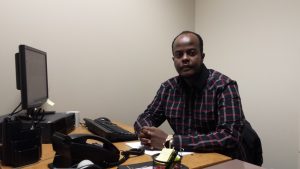
Ibrahim Nuru sits at his desk at the Catholic Charities agency in Springfield. Dave Eisenstadter photo
Ibrahim Nuru described himself as a lifelong humanitarian, and he has good reason. His great grandfather came to Tanzania and settled there from Somalia, fleeing war. Now Nuru works resettling refugees in the United States.
“I’ve seen refugees and how they suffer and I just wanted to help,” he said.
Nuru works in Springfield as a case worker for Catholic Charities agency. He used to do similar work in Hartford, but a reduction in the number of refugees being allowed into the country led to his being laid off, he said.
Kathryn Buckley-Brawner, executive director of the Catholic Charities agency in Springfield, was glad to get him.
“We read his background and were delighted at the amount of experience and background knowledge that he could bring to us,” she said. “By surrounding ourselves with people who can bring to us perspective, we do our jobs better, and that’s what Ibrahim brings to us in addition to an incredible background in working with refugees in Africa and the U.S.”
As a Muslim, Nuru said it is important to do good deeds and never to discriminate, and it was in part this faith that brought him to the United States.
“The world, especially Africa, they look up to America,” he said. “It is a land of opportunity, a land of freedom. People can express themselves.”
But that admiration has gone out the window since Trump has taken over, he said.
“The comment that the president made; it affected us,” he said. “Everybody loves their country.”
He added that while many countries, including Tanzania, are still working on eliminating rampant corruption and shoring up a more stable democratic system, to call them “shithole countries” ignores the fact that many of them achieved independence relatively recently.
Meanwhile, Nuru is having to tell many of his clients hoping to come to the United States from refugee camps and war-torn countries that their future and their family’s future is uncertain.
“It really makes me feel so sad for them,” he said. “I can not give them false hope or promise.”
From Senegal, West Africa, to Agawam
Stanislas “Stan” Coly was “shocked” by the president’s statements. “I think it’s ignorant and extreme,” he said. “I don’t know if he understands what makes this country what it is. It shows a lack of education and understanding.” 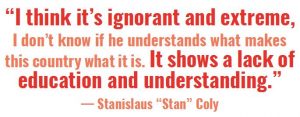 For 20 years, Coly has taught math and science in the Springfield Public Schools and is currently teaching at Van Sickle Middle School. He earned his M.S. in Science in Senegal and his M.A. in Education from American International College. He has worked in international camp programs for children in the United States and Africa, including programs through the YMCA of West Africa.
For 20 years, Coly has taught math and science in the Springfield Public Schools and is currently teaching at Van Sickle Middle School. He earned his M.S. in Science in Senegal and his M.A. in Education from American International College. He has worked in international camp programs for children in the United States and Africa, including programs through the YMCA of West Africa.
He is also an artist and storyteller who performs at storytelling events and at his business.
Coly and his wife Sheila, who have been married since 2003, operate Thousand Cranes Studios in Feeding Hills. The studio’s mission is “to bring an appreciation for fine arts, world crafts and world cultures to as many people in our community as possible.”
Sheila Coly is also an artist and between the two of them they speak 12 languages. On any given afternoon, Thousand Cranes Studio is bustling with children and teens who benefit from the Colys’ 16-year dedication to teaching art and building a strong loyal community.
Thousand Cranes Studio opened in 2002 and Coly said his first students are now bringing their children in for lessons and classes. “I’ve been doing this for a long time,” he said with a laugh. He joked that he should consider retiring.
When asked if he would retire here or back in West Africa, Coly says he would like to split his time between the two. For many years he has made yearly visits to Senegal; it is important to him that his roots remain strong in the country he loves.
“We leave so we can do well, not because we hate our country,” he said. “In the United States you can excel. Sometimes there are rules and regulations in our country that prevent us from going as far as we can, but in the United States those rules and regulations don’t exist and that allows us to excel if we work hard.”
As for Trump, Coly said he hopes the president backs down on his assertions and works to restore confidence in the philosophy and vision of this country — a country where “everyone should have room to grow.”
From El Salvador to Northampton
Brought to the United States at the age of 12 from El Salvador to escape gang violence, Bryan Torres enrolled in JFK Middle School in Northampton without being able to speak English. With the language challenge, he went from being a top student in El Salvador to being one of the worst performing students in his class.
But he dreamed of going to Amherst College, one of the top schools in the country.
When he graduated from Northampton High School, he knew his grades were not going to be good enough to get in. Instead he enrolled in Holyoke Community College, working three jobs to support himself and pay tuition.
Torres worked hard, both at his jobs and at school, and was helped by the Deferred Action for Childhood Arrivals (DACA) program. The program gave him the ability to have a driver’s license, work permit, and to receive in-state tuition at Holyoke Community College.
In 2015, he was accepted into Amherst as a transfer student, and graduated this past December.
“I was able to pick all the classes I wanted and even study abroad in Paris,” he said. “The (Amherst College) professors were extremely supportive and I think they are wonderful, really intelligent professors. I feel like I got the education I was looking for.”
Torres hopes to go into media or do human rights work to inform and empower people with news about injustices and inequalities, he said.
He said Trump’s comments show that he is racist and that he wants immigrants only from European nations to come into the country.
“He wants this country to be white again,” he said.
Torres said that the immigrants he knows from El Salvador are hard-working people, and many of them take jobs others would not want to fill.
As for his own status as someone who can remain in the country, it remains in limbo.
“We’re hoping for the DREAM Act to pass, but right now it’s uncertain,” he said.
Gina Beavers can be reached at gbeavers@valleyadvocate.com. Dave Eisenstadter can be reached at deisen@valleyadvocate.com.

